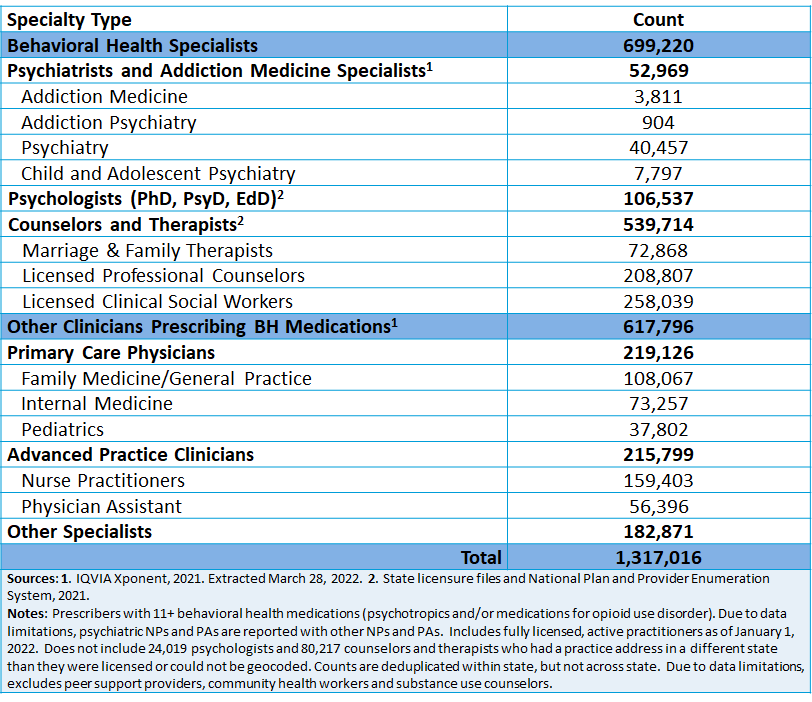You may also be interested in: |
About the DatabaseThe GWMI is committed to conducting research and policy analysis to promote greater equity in healthcare and society. For all healthcare services, the provider workforce represents a critical piece of the puzzle in determining equitable access to essential health services. The Behavioral Health Workforce project focuses on the mental health (MH) and substance use disorder (SUD) workforce in the United States.
<
>
Using IQVIA Xponent retail prescription data, we have identified over 600,000 physicians, nurse practitioners, and physician assistants prescribing 11 or more mental health/substance use disorder related medications in 2020. This dataset allows us to track providers over time by specialty, type of medication prescribed (including medications for addiction treatment or MAT), payor types (including acceptance of Medicaid), and volume of prescriptions (by type and payor).
<
>
To identify psychologists, counselors, and therapists, we are using state licensure data. We have collected and standardized data for:
Where state licensure data is not available or where address information is insufficient to map providers, the supply of psychologists, counselors, therapists, and social workers is provided by NPPES. NPPES data is used for:
<
>
Burning Glass
State-level policies
publicly available datasets
survey instruments
The Behavioral Health Workforce Tracker was created in partnership with HealthLandscape and was funded under grant number FG000028 from the Substance Abuse and Mental Health Services Administration (SAMHSA), U.S. Department of Health and Human Services (HHS). The views, policies, and opinions expressed do not necessarily reflect those of SAMHSA or HHS and should not be construed as such. |
© 2024 | 2175 K Street NW, Suite 250, Washington, DC 20037 | (202) 994-3423 | GW Privacy Policy

